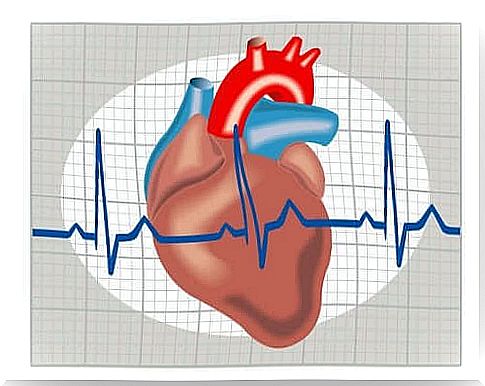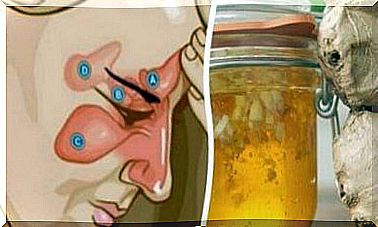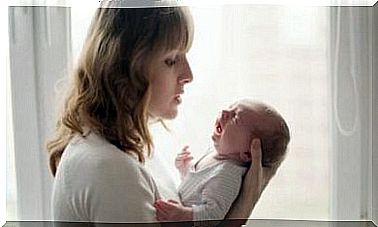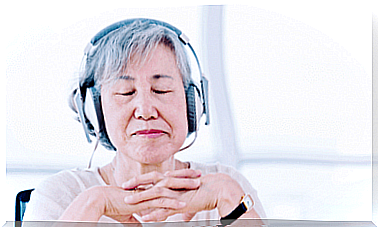What Causes Loss Of Consciousness?

In practice, loss of consciousness, or fainting, means loss of consciousness of reality. A person who suffers from loss of consciousness is unable to perceive what is happening around him, and he is not even able to identify himself.
The basic mechanism common to all causes of loss of consciousness is a disorder of the bloodstream. This means that the brain does not get enough blood for a while, which causes it to disconnect from reality.
Afterwards, the person typically recovers spontaneously. Spontaneous healing occurs because when a person falls, settling in a horizontal position causes blood to flow back to the brain again.
Fainting, or loss of consciousness, is relatively common. It is estimated that about 3% of hospital emergency contacts are due to this. Its causes can be harmless or dangerous.
Next, we explain these causes in more detail by dividing them into two different categories: non-cardiac loss of consciousness and cardiac loss of consciousness.

Non-cardiac loss of consciousness
Vasovagal loss of consciousness
This is the most common cause of fainting. The vasovagal reflex is an involuntary nervous response to a specific stimulus that causes an immediate dilation of blood vessels, a drop in blood pressure, and redistribution of blood to the lower extremities.
Sometimes it can also be due to a stressful situation, as well as severe pain, dehydration and extreme temperatures on the body.
Sudden changes in posture
When you quickly change from a horizontal position to a vertical position without giving your body enough time to activate the compensation mechanisms, you may have hypotension. This means that your blood pressure drops suddenly, which in turn leads to a lack of blood supply to the brain and loss of consciousness.
Migraine
Severe migraine-type headaches may be associated with aura symptoms. One of the aura symptoms is loss of consciousness, which, however, is usually very temporary.
Hypoglycemia
A drop in blood sugar can also cause fainting. This situation is common in diabetics who may suffer from extreme decreases in blood sugar levels due to dietary changes or medications.
Antihypertensives
A person with high blood pressure is usually treated with different medications with different modes of action. Some of the mechanisms of action of these drugs include fluid loss due to increased urination, and vasodilation.
Both of these can lower blood pressure considerably and thus cause loss of consciousness.
Paralysis or heart attack
This is the most serious and life-threatening non-cardiac cause of loss of consciousness.
A stroke or cerebrovascular accident may be ischemic, due to arterial occlusion, or due to cerebral hemorrhage. If you suspect that you or someone else is suffering from symptoms of a stroke, seek or help a patient seek medical attention immediately.
Causes of loss of consciousness related to the heart
Arrhythmias
Arrhythmias are conditions in which the heart beats irregularly and abnormally. In this case, not enough blood enters the brain. These breaks can be either long or short, depending on the nature of the arrhythmia. Thus, the patient may faint.
Aortic problems
Cardiomyopathy
This disease affects the heart muscle. A common situation is an enlargement of the left ventricle, which is responsible for pumping blood into the aorta for distribution. In these cases, the same mechanism may occur as what we described in aortic problems.
Heart valve diseases
The internal cavities of the heart communicate with each other through flaps that allow blood to flow in one direction without counterflow. Sometimes these flaps can have malfunctions. When the heart valves do their job properly, not enough blood enters the brain.

Loss of consciousness: how to act?
You should always be vigilant if you notice signs of loss of consciousness in yourself or a loved one. Loss of consciousness can be a sign of a trivial ailment, but sometimes even a serious heart-related illness.
In case of doubt, it is always important to consult a doctor in order to perform the necessary tests. Usually, a doctor is visited soon after the patient has suffered from his or her first unconsciousness and recovered from it.
If there is a sudden loss of consciousness and the person who has lost consciousness is not self-conscious, you should call the emergency center immediately. This can be, at worst, a heart attack or cardiac arrest.









